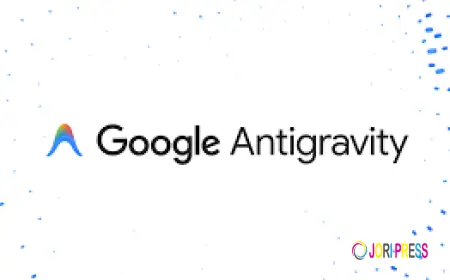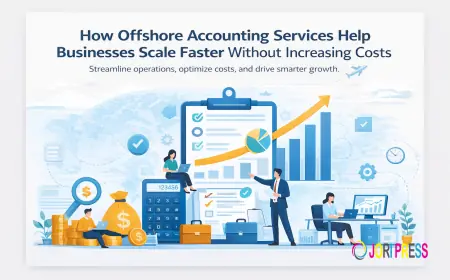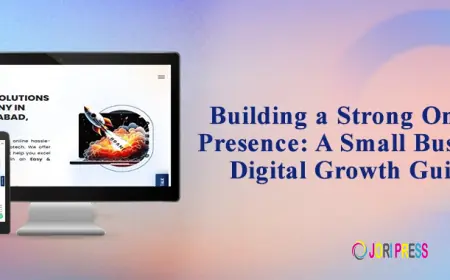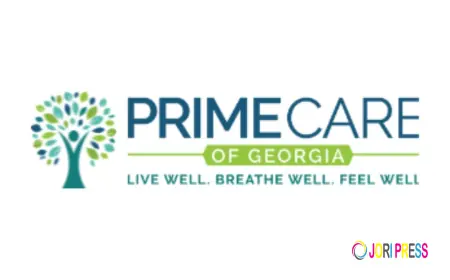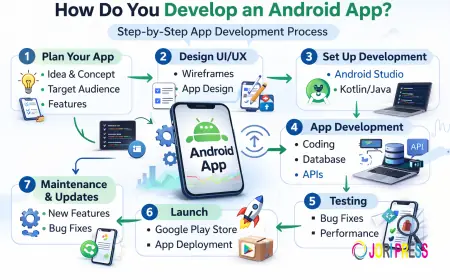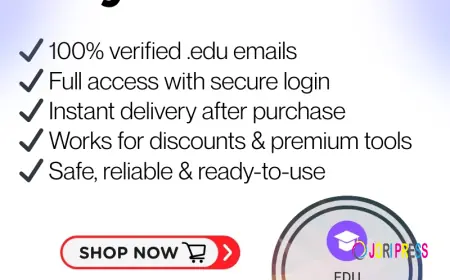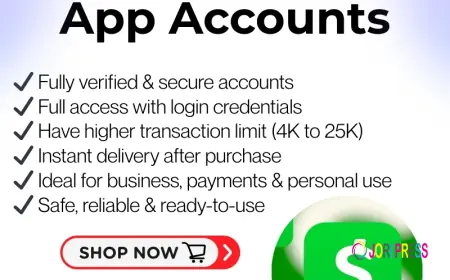How Do Real Estate Tokenization Services Improve Accessibility for Small Investors?
In essence, real estate tokenization is not just an innovation in property investment—it is a democratization of wealth-building opportunities for investors of all scales.
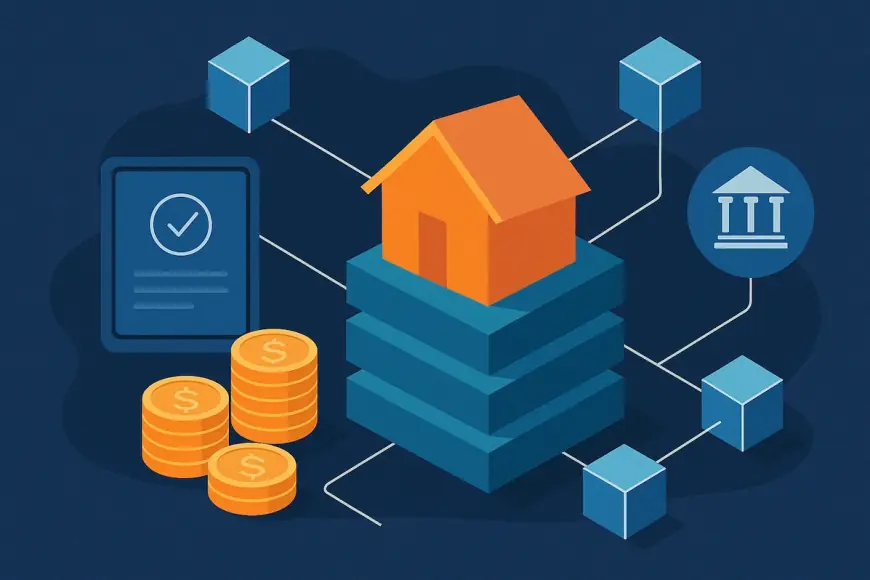
The real estate sector has traditionally been one of the most lucrative investment opportunities. However, it has also been notoriously inaccessible for small investors due to high capital requirements, legal complexities, and liquidity constraints. With the emergence of blockchain technology and real estate tokenization, a paradigm shift is taking place, offering new avenues for small investors to participate in property markets that were once exclusive to institutional players and high-net-worth individuals. This blog explores how real estate tokenization services are revolutionizing the industry and improving accessibility for small investors.
Understanding Real Estate Tokenization
Real estate tokenization is the process of converting ownership rights in a property into digital tokens on a blockchain. Each token represents a fractional ownership stake in the property, which can then be bought, sold, or traded on a blockchain-based platform. These tokens are secured using smart contracts, ensuring transparency, efficiency, and legal compliance. Essentially, tokenization transforms a traditionally illiquid and capital-intensive asset into a liquid, divisible, and accessible investment vehicle.
By breaking down property ownership into smaller, tradable units, tokenization removes the barrier of requiring large sums of money to enter the real estate market. For small investors, this opens up opportunities to participate in high-value real estate projects that were previously out of reach.
Lowering the Investment Barrier
One of the most significant ways real estate tokenization services improve accessibility is by lowering the financial entry barrier. Traditionally, investing in a residential or commercial property requires a substantial upfront investment, often in the hundreds of thousands or even millions of dollars. Small investors typically lack the capital to acquire an entire property, leaving them with limited investment options, such as REITs (Real Estate Investment Trusts) or indirect property funds.
With tokenization, investors can purchase fractional tokens representing a portion of a property, sometimes for as little as $50 or $100 per token. This fractional ownership enables diversification across multiple properties, allowing small investors to spread their risk and participate in real estate markets without committing significant capital. As a result, tokenization democratizes property investment and empowers more individuals to build wealth through real estate.
Enhancing Liquidity and Market Access
Another critical advantage of real estate tokenization for small investors is enhanced liquidity. Traditional real estate investments are illiquid, requiring months or even years to sell a property and access invested capital. This limitation discourages many small investors who prefer flexibility in managing their investments.
Tokenized real estate can be traded on digital asset exchanges or blockchain marketplaces, creating a secondary market for fractional ownership. Small investors can buy or sell tokens at any time, depending on market conditions, much like trading stocks. This liquidity provides an unprecedented level of freedom and control over investment portfolios, making real estate an attractive option for investors who value flexibility alongside potential returns.
Transparency and Security through Blockchain
Blockchain technology is the backbone of real estate tokenization services. It ensures transparency, security, and tamper-proof records for all transactions. Smart contracts automatically execute terms of ownership, dividends, or rental income distribution, reducing the need for intermediaries and minimizing the risk of fraud.
For small investors, this transparency and security are crucial. It enables them to verify property ownership, track investment performance, and receive timely updates on income distributions. The trustless nature of blockchain technology eliminates the reliance on traditional intermediaries, such as brokers or property managers, who may charge high fees or create inefficiencies in the investment process.
Diversification Opportunities for Small Investors
Real estate tokenization allows small investors to diversify their portfolios across different asset classes, geographical locations, and property types. Instead of being limited to local real estate markets or a single property type, investors can access international commercial properties, residential complexes, hotels, or mixed-use developments.
Diversification reduces risk and enhances the potential for stable returns. Small investors can strategically allocate their capital across multiple tokenized assets, mitigating the impact of market volatility or localized economic downturns. By providing access to a broader range of real estate opportunities, tokenization levels the playing field between small and institutional investors.
Streamlined Investment Process
Investing in traditional real estate often involves complex legal processes, extensive paperwork, and lengthy due diligence. Small investors may struggle to navigate these challenges or afford legal and advisory fees. Real estate tokenization services simplify the investment process through digital platforms that handle onboarding, KYC (Know Your Customer), property verification, and transaction settlement.
Investors can review available tokenized properties, purchase tokens, and manage their holdings directly from the platform. The automation of administrative tasks through smart contracts reduces friction and accelerates investment transactions. For small investors, this streamlined approach makes real estate investment more accessible, efficient, and user-friendly.
Global Accessibility for Investors
Blockchain-based tokenization platforms break down geographical barriers, allowing small investors from around the world to participate in real estate markets previously limited to specific regions. Investors no longer need to be physically present or navigate complex international property laws to acquire ownership.
Tokenization platforms often provide legal and regulatory compliance frameworks tailored to different jurisdictions. This global accessibility empowers small investors to diversify internationally and tap into high-growth real estate markets without excessive overhead or administrative complexity.
Passive Income and Dividend Opportunities
Tokenized real estate often offers small investors the chance to earn passive income through rental yields or profit-sharing mechanisms. Smart contracts automatically distribute rental income, interest, or dividends proportional to each token holder’s stake.
For small investors, this passive income is particularly attractive. They can generate steady cash flow without managing the property themselves, while still participating in the capital appreciation of the real estate asset. This combination of income and investment growth enhances the financial viability of small-scale real estate investment.
Lower Fees and Reduced Intermediaries
Traditional real estate investments involve multiple intermediaries, including brokers, property managers, legal advisors, and banks, all of whom charge fees. These costs can significantly reduce returns for small investors.
Tokenization minimizes intermediaries through blockchain automation, reducing transaction costs and enabling more direct participation. Smart contracts handle ownership transfers, dividend payments, and compliance verification automatically. As a result, small investors retain a larger share of returns while benefiting from an efficient, technology-driven investment model.
Real-World Examples and Adoption
Several real estate tokenization platforms have successfully improved accessibility for small investors. Platforms such as RealT, SolidBlock, and Slice have enabled fractional ownership of residential and commercial properties in the United States, Europe, and Asia. These platforms allow investors to acquire tokens representing specific properties, receive rental income, and trade tokens on digital marketplaces.
Institutional adoption is also growing, with developers and real estate funds exploring tokenization to attract a broader investor base. This trend demonstrates that tokenization is not just a technological experiment but a viable pathway to democratize real estate investment for small-scale investors.
Regulatory Considerations and Investor Protection
While tokenization opens doors for small investors, regulatory compliance remains a key consideration. Different jurisdictions have varying rules regarding security tokens, investor eligibility, and property ownership. Reputable tokenization services prioritize adherence to local regulations, implementing KYC/AML (Anti-Money Laundering) procedures and offering transparent disclosures about investment risks.
For small investors, this regulatory oversight provides an added layer of protection. By participating in legally compliant tokenized offerings, investors can confidently access global real estate markets while mitigating risks associated with fraud or unregulated platforms.
Future Prospects for Small Investors
The future of real estate tokenization looks promising. As technology advances, transaction costs will further decrease, platforms will become more user-friendly, and global adoption will increase. Small investors can anticipate greater accessibility, diversified investment opportunities, and real-time liquidity in real estate markets.
Tokenization is poised to redefine the traditional real estate investment model, making it more inclusive, efficient, and attractive for individuals who previously lacked the capital or expertise to invest in property markets. For small investors, this represents a transformative shift in wealth-building potential.
Conclusion
Real estate tokenization services are reshaping the investment landscape, providing small investors unprecedented access to a market that was once the domain of institutions and high-net-worth individuals. By lowering entry barriers, enhancing liquidity, offering global diversification, and reducing reliance on intermediaries, tokenization empowers small-scale investors to participate in profitable real estate opportunities.
With blockchain technology ensuring transparency, security, and automation, small investors can confidently engage in property investments while earning passive income and building diversified portfolios. As the adoption of tokenization continues to grow, small investors will increasingly benefit from a more accessible, equitable, and dynamic real estate market.
What's Your Reaction?
 Like
0
Like
0
 Dislike
0
Dislike
0
 Love
0
Love
0
 Funny
0
Funny
0
 Angry
0
Angry
0
 Sad
0
Sad
0
 Wow
0
Wow
0


